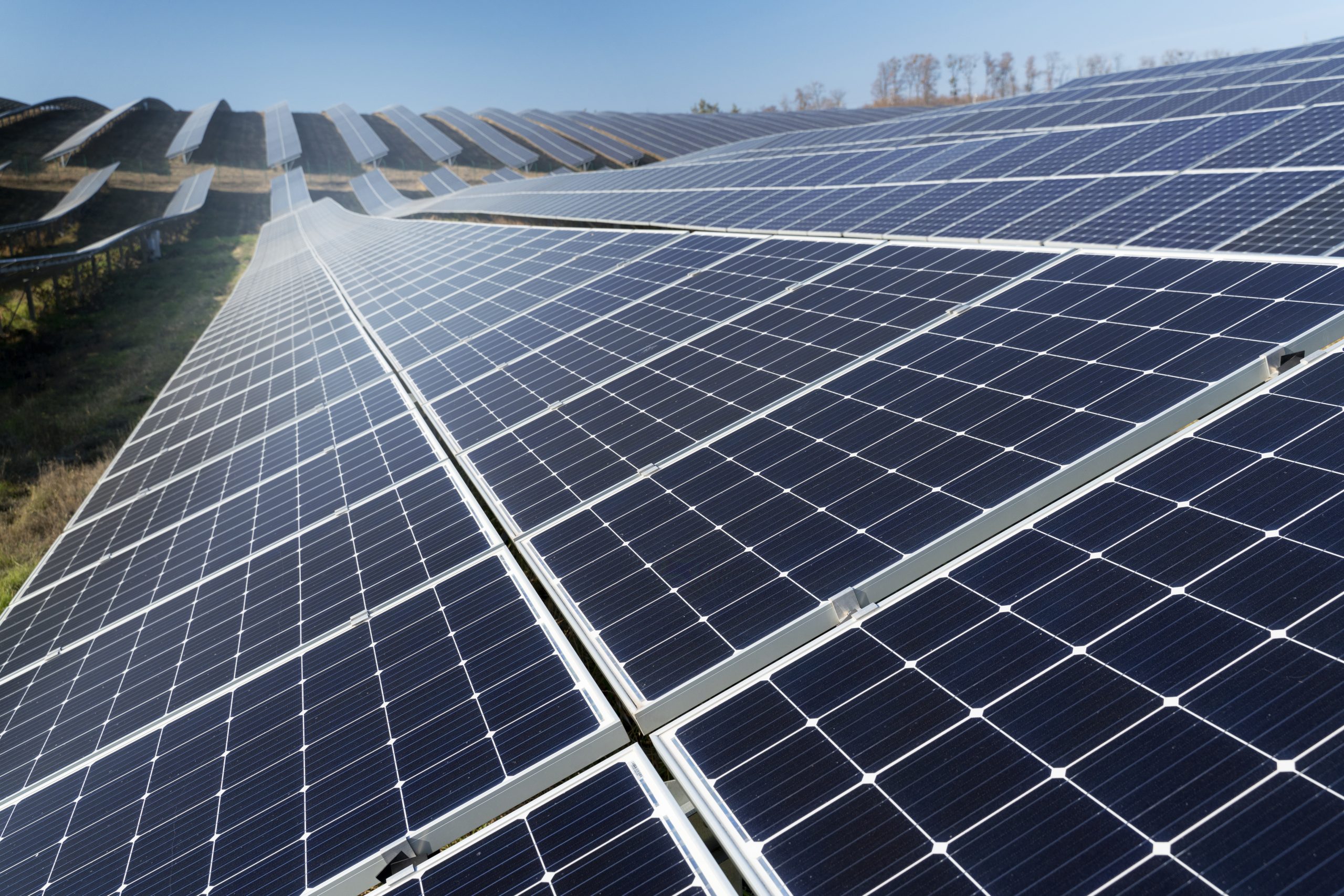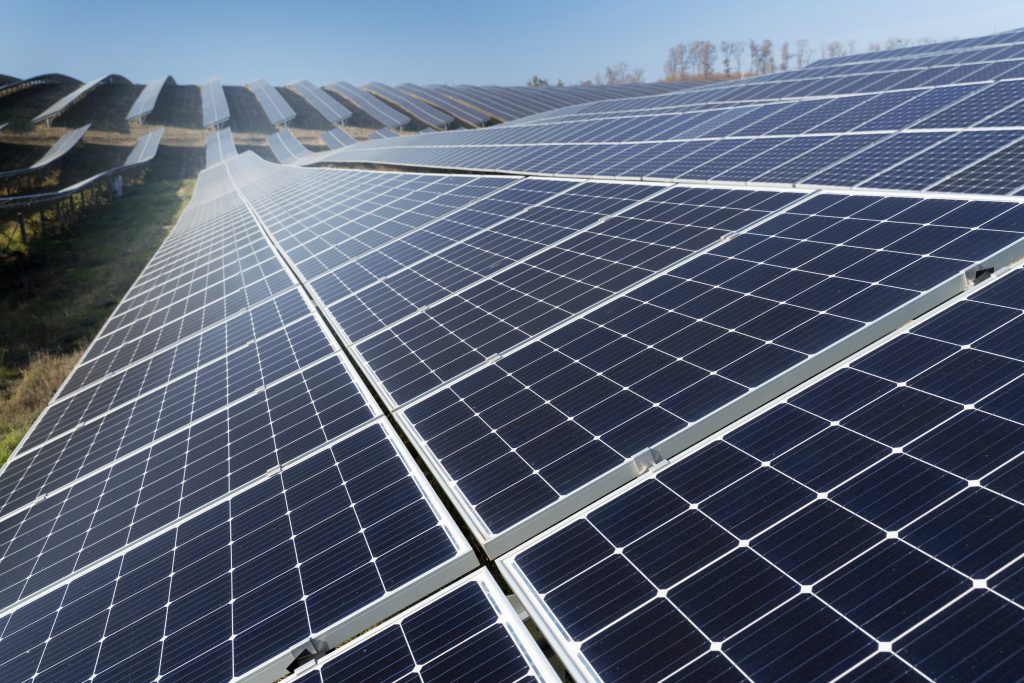
02 Aug The Importance of Solar Batteries: Storing Energy for Later Use
In an era marked by growing environmental concerns and the urgent need for sustainable energy solutions, solar power has emerged as a beacon of hope. The turn away from fossil fuels favors sun energy through this period of transition. One major problem associated with this is the intermittent nature of solar power. This is where solar batteries come in as a game changer in the storage and usage of renewable energy.
Rise of Solar Energy
In the past decade, solar energy has grown more than tenfold. Improved technology and declining costs met a rising awareness of the climate issue and have moved adoption rates up rapidly. From residential rooftops to vast solar farms, photovoltaic panels are now becoming a familiar sight worldwide. This huge growth in solar installations brings us closer to a clean energy future and underlines the need for effective energy storage solutions.

Intermittency Challenge of Solar Power
The other major fault with this source of energy is its intrinsic intermittency. The solar panel can produce electricity only in the presence of the sun, and hence production falls on cloudy days and goes to zero at night. This basically brings out the mismatch between energy demand and energy supply: peak solar production often coincides with low electricity demands, and vice versa. Much of the solar power potential goes to waste due to an inability to store that excess energy for later in the day or at night.
Game-Changing Solution: Solar Batteries
Solar batteries help counter this problem of intermittency by storing extra energy produced at the peak times in sunlight for later use when the sun is not shining. Such innovation can make the power supply constant and reliable, shifting solar from a daytime source into a 24/7 power solution. In that light, solar batteries are quite instrumental in the full adoption of renewable energy in that they bridge the gap between energy production and consumption.
How Solar Batteries Work
The mechanism of solar batteries works on a very simple yet ingeniously brilliant principle. When solar panels are producing more electricity than is consumed, instead of sending it back to the grid, any excess generated is used to charge the battery. All this stored energy can then be utilized later when there is little or no solar production—think nightfall and cloudy days. At the very core of this process are a few major parts:
• Solar panels produce DC electricity.
• The DC is converted into AC, usable in homes and businesses, through an inverter.
• A controller controls the flow of electricity in and out of the battery.
• While storing this energy chemically in the battery.
• This stored energy will be returned as AC and fed back when needed.
This system provides continuous power and enhances the value of any solar installation, breaking dependence upon the traditional power grid.
Advantages of Solar Battery

The innovation of solar batteries in renewable energy systems presents various advantages associated with them, including:
Energy Independence: The excess energy stored in them allows both homes and business entities to reduce reliance on the grid and probably attain independence in energy.
Cost Savings: With their stored energy, solar batteries are capable of avoiding peak electricity rates during times of peak demand.
Backup Power: The solar batteries provide a very reliable source of backup power in case grid failures or natural catastrophes take place.
Grid Stability: On a larger scale, storage can also help to stabilize the grid by smoothing fluctuations in solar energy generation.
Better Solar Efficiency: Since all the energy that batteries produce from solar leaves scope for none being wasted, this makes for a better return on one’s investment in this technology.
Reduction in Carbon Footprint: The more that can be used of clean solar energy through batteries has helped in drastic reductions in emissions of greenhouse gases.
Solar Battery Types
There are a couple of battery types that are in use for storing solar energy, all of which have very distinct characteristics.
Lithium-Ion Batteries: The most popular choice at present, they have very high energy density, long cycle life, and decreasing costs. The applications range from residential and large-scale applications.
Lead-Acid Batteries: This technology is older and less expensive, although it has a shorter lifespan when compared to lithium-ion and a lesser depth of discharge.
Flow Batteries: Applied for large-scale storage, flow batteries are capable of holding huge amounts of energy and have very long cycle life.
Ecological Impact
While the solar batteries significantly enhance the green benefits of solar energy, one still has to account for their own :
Lifetime/Warranty: Most of the solar batteries have an average lifetime/warranty normally in the range of 5 to 15 years and should be replaced long before the actual solar panels really reach their end-of-life.
Recycling: All batteries should also be properly treated in the event of disposal or replacement upon the end of service life to ensure a minimal effect on the environment. Fortunately, most constituents are recyclable and can be used again.
Net Benefit: Despite all these factors, the net impact on the environment from solar batteries is positive compared to fossil fuel alternatives. They use more renewable energy and cut down dependence on polluting power plants.
Economic Issues
The economics of solar batteries are complex and dynamic. Notably:
Long-Term Savings: Batteries are going to bring long-term enormous savings on electricity bills, particularly at sites that have time-of-use rates or low feed-in tariffs.
Falling Prices: Like solar panels, the cost of batteries has been dropping fast and is therefore increasingly affordable.
Governments’ Incentives: Many regions provide incentives for installing batteries; this enhances the economic equation for consumers.
Growing Market: Growth in the market for solar batteries fuels innovation and economies of scale, which eventually decrease the cost.
Future Prospects and Innovations
As works on research and development go on, massive developments seem to appear in the future of solar batteries. This could be very briefly mentioned as follows:
More Capacity: Scientists are working on new chemistries that could dramatically increase storage capacity for longer spells of energy independence.
Improved Durability: Longevity is increasing; hence, reduction in the replacement rates will result in reduced long term costs.
Scalability: Developments in large-scale battery storage make a huge potential difference in grid operations, from running an entire community to a whole city with sun energy stored in batteries.
Solar batteries, therefore, become a very important link in this chain towards renewable energy adoption, for they solve the intermittency problem intrinsic to solar and thus open up a future in which clean and sustainable energy is not an alternative source of power but the very first to be called upon, satisfying homes, business enterprises, and even entire communities.
However, that is not all about independence a person can get; solar batteries are very instrumental in the transition towards renewable energy, which is important in the avoidance of climatic change and air pollution, hence ensuring that there will be a more resilient and sustainable energy infrastructure.
Continuous technological improvements and drastically dropping costs put solar batteries at the heart of our energy landscape today. It lets consumers be energy leaders, shakes up traditional utility models, and speeds up the phase-out of fossil fuel assets.
While this road winds into the future of energy from a sustainability perspective, it is indeed so complex and multifaceted. Solar batteries will be one of the greatest hopes because they are able to connect the production with the consumption of energy and turn the occasional power from the sun into a continuous, reliable supply of energy.
The role that solar batteries can play in our world threatened by climate change cannot be overemphasized. In addition to energy, they store the potential for a cleaner and more sustainable world. Indeed, while new innovations keep arriving and adoption becomes wide, then surely solar batteries shall be among the major drivers in forming a future powered by the limitless energy of the sun.


No Comments